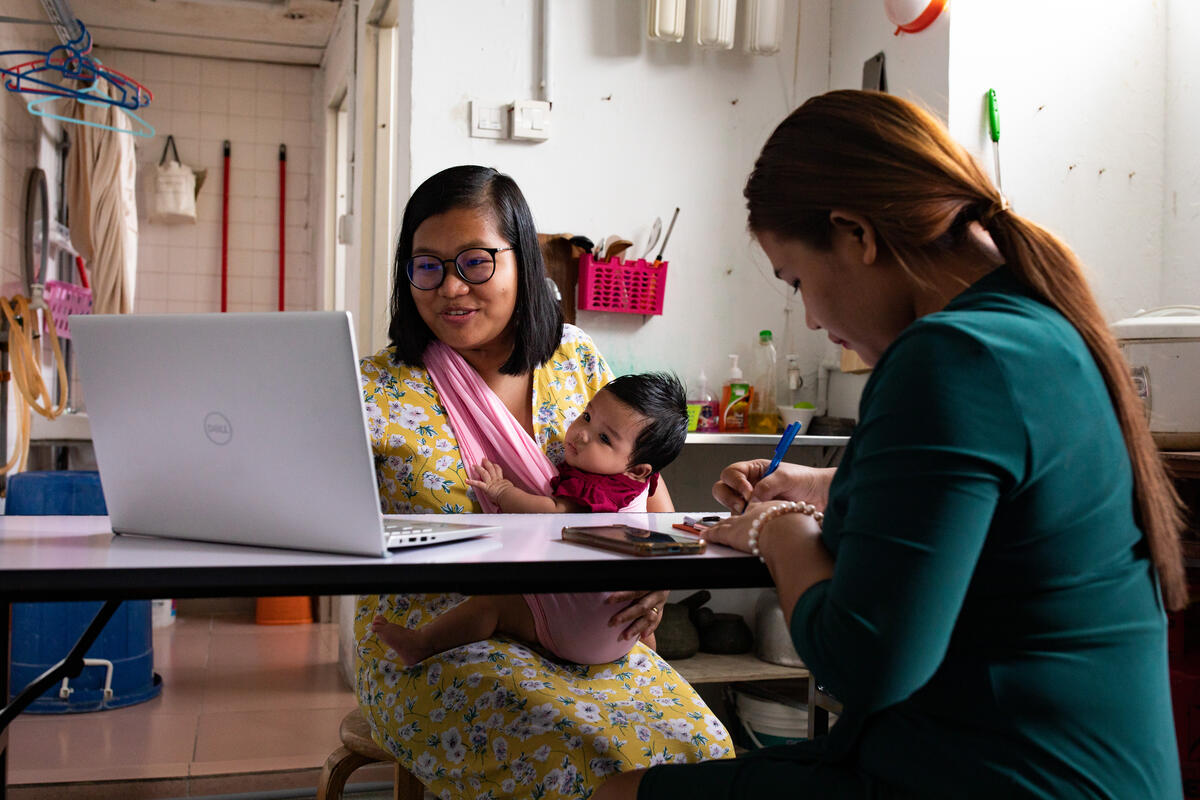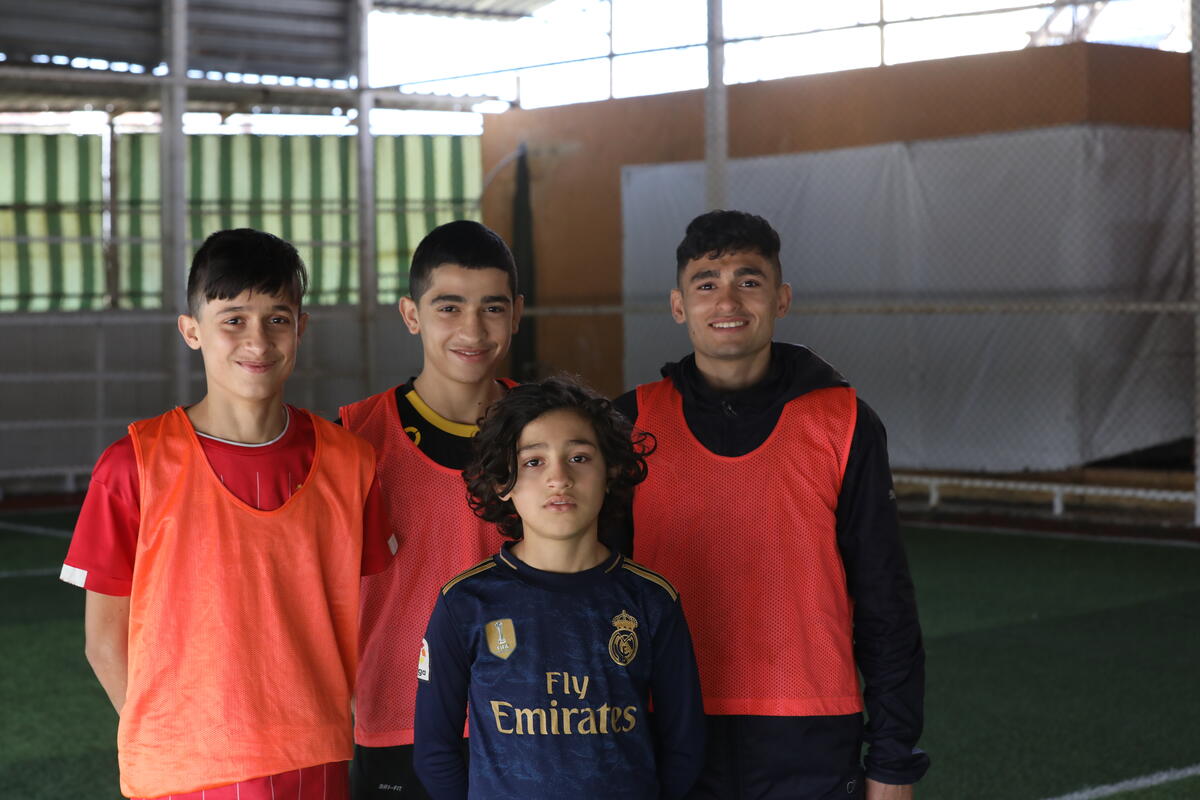World AIDS Day: Challenges ahead for UNHCR in battling HIV and AIDS
World AIDS Day: Challenges ahead for UNHCR in battling HIV and AIDS

GENEVA, December 1 (UNHCR) - A senior UNHCR official said on Monday that while the UN refugee agency had made progress in battling HIV and AIDS among displaced populations in recent years, there is still a long way to go.
"UNHCR's HIV and AIDS programmes have come a long way," Arnauld Akodjenou, head of UNHCR's Division of Operational Services, said in a special World AIDS Day message for staff. "HIV remains one of the policy priorities of the High Commissioner [for Refugees António Guterres] and protection remains the cornerstone of UNHCR's HIV and AIDS strategy."
Akodjenou noted that "Today, we have reached nearly 100 percent coverage in universal precautions in health clinics in refugee camps and safe blood supply to refugees; [while] access to programmes for prevention of mother-to-child transmission increased to more than 60 percent."
He also revealed that anti-retroviral therapy is now available to UNHCR beneficiaries in many refugee camps, and that its coverage for refugees increased to 75 percent in 2008.
But serious challenges remain. "We need to scale up efforts in HIV prevention, care and treatment for our staff, refugees and other persons of concern. We need to work closer with communities to develop community-based HIV prevention and care initiatives while continuing to tackle stigma and discrimination towards people living with HIV. We also need to ensure medical confidentiality in all circumstances," said Akodjenou.
"Each of us should contribute in our own way to fighting HIV and AIDS. This may include advocating for the inclusion of refugees and other displaced persons in national HIV policies and programmes, tackling the social and economic inequalities and injustices, and protecting and promoting human rights."
As part of a larger campaign to ensure that policymakers keep their promises on AIDS, this year's World AIDS Day theme is "Lead - Empower - Deliver." UNHCR offices around the world will be marking the occasion with a range of events, while many bureaux will reflect on the success of current programmes - such as the launch of a major awareness and prevention campaign in south-east Democratic Republic of the Congo (DRC).
The landmark campaign in Katanga province kicked off in October, when a travelling roadshow visited the town of Moba, on Lake Tanganyika, and surrounding areas. Staff from UNHCR and partner organizations distributed information about HIV and AIDS, provided training and offered locals free HIV tests.
Since 2006, when UNHCR set up field offices in Katanga, tens of thousands of people have returned to their homes from overseas or other parts of the province. But they remain at risk to disease, including HIV and AIDS, said Philippe Creppy, head of UNHCR's Moba office. "Precautions to contain the risk of propagation of the [HIV] virus are essential in a country which is still struggling to rehabilitate its basic health infrastructures."
The campaign in Katanga, which will enlist the help of traditional chiefs and local health workers, will spread awareness about the vital importance of prevention and will also encourage people to take free HIV tests. The young will be a particular target. UNHCR will also work with civil society to design and implement HIV and AIDS programmes.
Creppy said UNHCR and its partners hoped that free testing, together with the training of medical staff and the development of health facilities and comprehensive policies, would help "put the brakes on the rapid development of this scourge in the territory." Those found to be living with HIV will receive anti-retroviral drugs.
The campaign, involving more than a dozen non-governmental organizations, will gradually be extended to the rest of the DRC and is scheduled to last five years.
By Leo Dobbs in Geneva
and Francesca Fontanini in Moba, DRC








